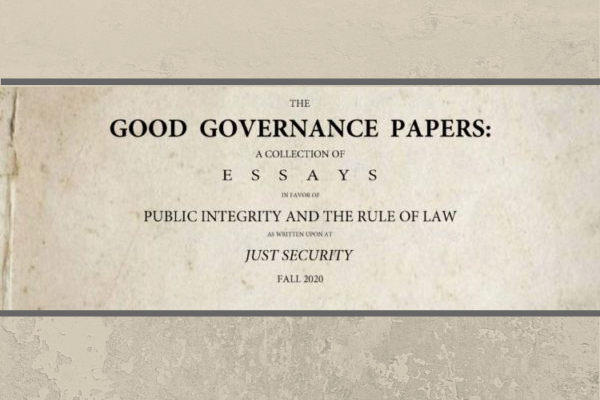"The Good Governance Papers" Address Urgent National Security-Related Reforms


Mershon Center Senior Faculty Fellow Dakota Rudesill is co-organizer and co-editor of a series of timely essays now being published at Just Security addressing norms of good government, ethics, and the rule of law which have been violated in recent years. The essays are entitled The Good Governance Papers. They are authored by a bipartisan and interdisciplinary group of experts, and address urgent national security-related reforms through actionable, nonpartisan proposals. The essays are currently being published daily through Oct. 31 and will ultimately become an edited volume. Topics include domestic use of military force, lawful and unlawful orders, intelligence, congressional oversight, classified information, foreign election interference, investigating the President, nuclear weapons, and more.
Catch The Good Governance Papers as they publish here.
